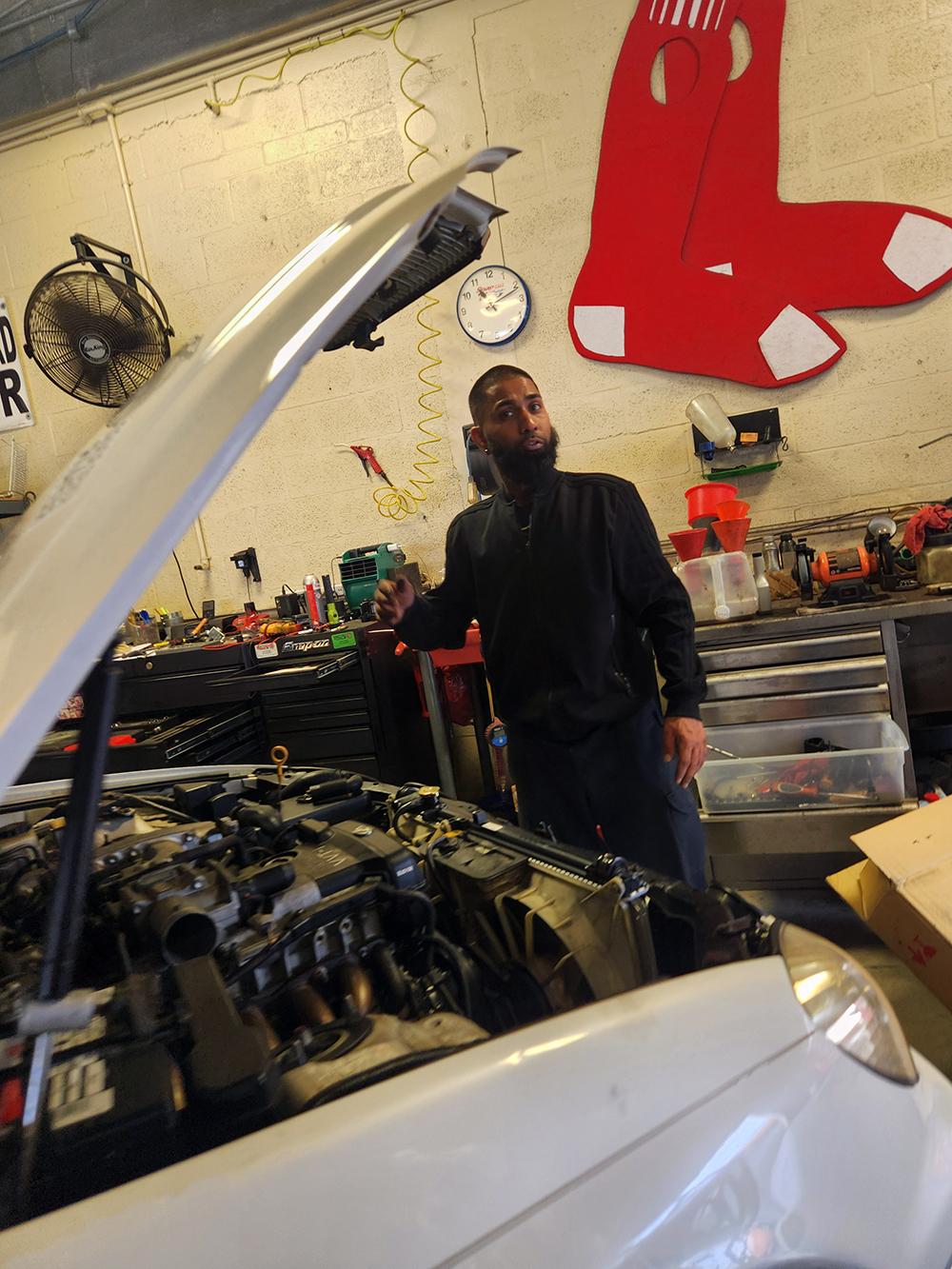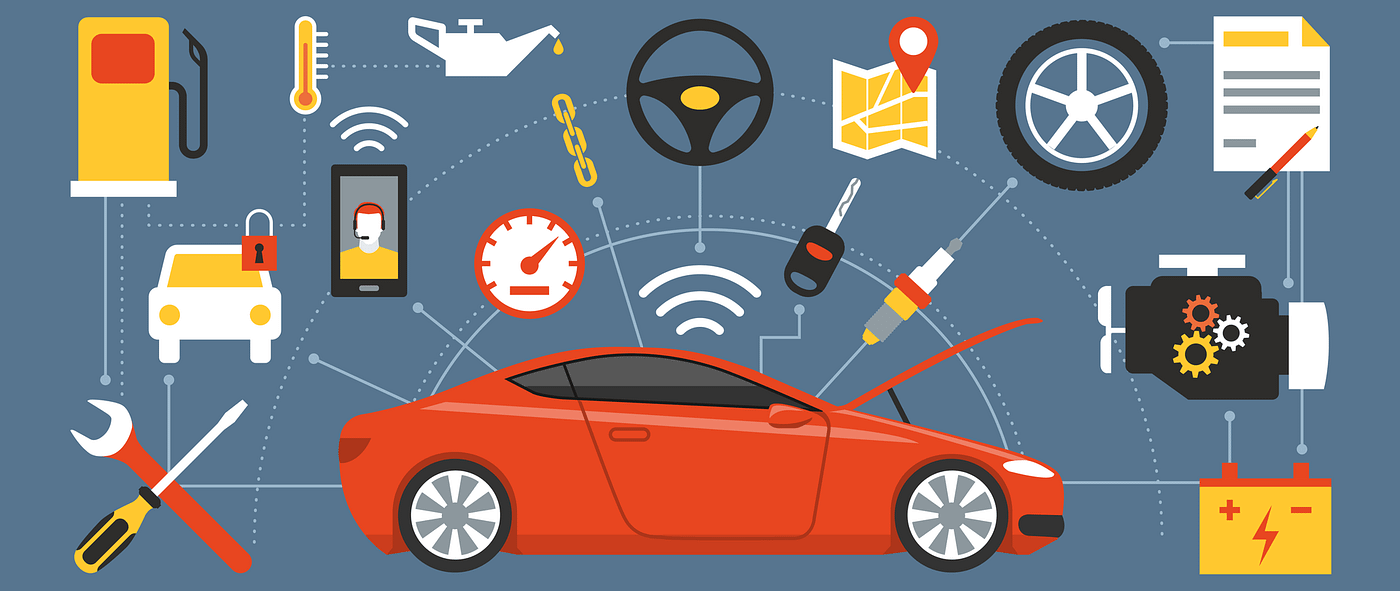All Categories
Featured
Usually overlooked, the timing belt plays a crucial function in keeping your engine integrated and operating at peak performance. In this post, we'll explore the value of timing belt replacement and why it's crucial to your engine's long life.
What Is a Timing Belt and How Does It Function? The timing belt is a rubber or strengthened composite belt that links the crankshaft to the camshaft in your engine. These 2 parts should operate in sync for the engine's shutoffs to open and shut at the correct times during the burning cycle. The timing belt controls this synchronization, guaranteeing that the valves and pistons don't collide.
![]()
As your engine runs, the timing belt continuously relocates to maintain these components aligned. In time, the belt undergoes damage from warmth, engine, and rubbing vibrations. If it breaks or comes to be loosened, the crankshaft and camshaft will no more be synchronized, triggering engine misfires, loss of power, or, in the worst case, serious engine damages.
Why Timing Belt Substitute Is Essential. Prevents Serious Engine Damages: If the timing belt breaks while the engine is running, the pistons can hit the shutoffs, creating bent valves, damaged pistons, or even a fractured engine block. This kind of damage commonly calls for pricey and substantial repair work or an entire engine substitute. Replacing the timing belt prior to it stops working is a affordable and basic method to prevent such catastrophic consequences.
![]()
Makes Certain Smooth Engine Procedure: A properly maintained timing belt aids maintain your engine running efficiently by preserving the appropriate synchronization in between the crankshaft and camshaft. When the timing belt is broken or extended, the timing of the engine's shutoffs may be off, creating engine misfires, harsh idling, or stalling. Replacing the timing belt at the recommended period makes sure that the engine runs as it was designed to, maximizing efficiency and effectiveness.
Saves You Money: Although changing the timing belt might seem like a considerable in advance cost, it's far much more inexpensive than the expense of fixing or changing a harmed engine. The labor involved in changing the timing belt is much less pricey than repairing engine elements that are damaged due to a busted belt. Routine timing belt replacement can conserve you hundreds of dollars over time by avoiding engine failing and pricey repair services.
Avoids Unexpected Malfunctions: If your timing belt breaks all of a sudden while you're driving, it can leave you stranded and call for pricey towing. In the worst situations, it can trigger a complete engine failing that renders your cars and truck unusable. By replacing the timing belt according to the maker's standards, you lower the risk of unexpected failures and guarantee your lorry stays reputable throughout day-to-day driving and long journeys.
When Should You Replace Your Timing Belt? The timing belt does not last forever, and its substitute timeline can differ relying on the make and version of your lorry. Most makers recommend replacing the timing belt every 60,000 to 100,000 miles. It's vital to consult your lorry's proprietor's guidebook for details standards, as some engines might call for earlier or later on replacements.
If you're unsure concerning the condition of your timing belt, indicators that it may require changing include uncommon engine noise (such as ticking or slapping noises), difficulty beginning the engine, or bad engine efficiency. A professional technician can examine the timing belt for wear and tear and replace it if necessary.
Conclusion. The timing belt is an important part of your vehicle's engine, and its correct upkeep can save you from expensive repair services and engine damage. Regularly replacing the timing belt at the producer's recommended periods assists guarantee smooth engine procedure, avoids unforeseen failures, and inevitably prolongs the life of your engine. Don't overlook this crucial upkeep job-- by remaining on top of timing belt replacement, you're investing in the long-lasting wellness of your vehicle.
What Is a Timing Belt and How Does It Function? The timing belt is a rubber or strengthened composite belt that links the crankshaft to the camshaft in your engine. These 2 parts should operate in sync for the engine's shutoffs to open and shut at the correct times during the burning cycle. The timing belt controls this synchronization, guaranteeing that the valves and pistons don't collide.

As your engine runs, the timing belt continuously relocates to maintain these components aligned. In time, the belt undergoes damage from warmth, engine, and rubbing vibrations. If it breaks or comes to be loosened, the crankshaft and camshaft will no more be synchronized, triggering engine misfires, loss of power, or, in the worst case, serious engine damages.
Why Timing Belt Substitute Is Essential. Prevents Serious Engine Damages: If the timing belt breaks while the engine is running, the pistons can hit the shutoffs, creating bent valves, damaged pistons, or even a fractured engine block. This kind of damage commonly calls for pricey and substantial repair work or an entire engine substitute. Replacing the timing belt prior to it stops working is a affordable and basic method to prevent such catastrophic consequences.

Makes Certain Smooth Engine Procedure: A properly maintained timing belt aids maintain your engine running efficiently by preserving the appropriate synchronization in between the crankshaft and camshaft. When the timing belt is broken or extended, the timing of the engine's shutoffs may be off, creating engine misfires, harsh idling, or stalling. Replacing the timing belt at the recommended period makes sure that the engine runs as it was designed to, maximizing efficiency and effectiveness.
Saves You Money: Although changing the timing belt might seem like a considerable in advance cost, it's far much more inexpensive than the expense of fixing or changing a harmed engine. The labor involved in changing the timing belt is much less pricey than repairing engine elements that are damaged due to a busted belt. Routine timing belt replacement can conserve you hundreds of dollars over time by avoiding engine failing and pricey repair services.
Avoids Unexpected Malfunctions: If your timing belt breaks all of a sudden while you're driving, it can leave you stranded and call for pricey towing. In the worst situations, it can trigger a complete engine failing that renders your cars and truck unusable. By replacing the timing belt according to the maker's standards, you lower the risk of unexpected failures and guarantee your lorry stays reputable throughout day-to-day driving and long journeys.
When Should You Replace Your Timing Belt? The timing belt does not last forever, and its substitute timeline can differ relying on the make and version of your lorry. Most makers recommend replacing the timing belt every 60,000 to 100,000 miles. It's vital to consult your lorry's proprietor's guidebook for details standards, as some engines might call for earlier or later on replacements.
If you're unsure concerning the condition of your timing belt, indicators that it may require changing include uncommon engine noise (such as ticking or slapping noises), difficulty beginning the engine, or bad engine efficiency. A professional technician can examine the timing belt for wear and tear and replace it if necessary.
Conclusion. The timing belt is an important part of your vehicle's engine, and its correct upkeep can save you from expensive repair services and engine damage. Regularly replacing the timing belt at the producer's recommended periods assists guarantee smooth engine procedure, avoids unforeseen failures, and inevitably prolongs the life of your engine. Don't overlook this crucial upkeep job-- by remaining on top of timing belt replacement, you're investing in the long-lasting wellness of your vehicle.
Latest Posts
Don’t Miss Exclusive Auto Repair Offers in Chicago at Montclare Auto Repair
Published en
1 min read
Improve Your Home's Exterior with Weathercraft's House siding Solutions
Published en
1 min read
Safeguard Your Financial Investment with Professional Rain Gutter Installation
Published en
1 min read
More
Latest Posts
Don’t Miss Exclusive Auto Repair Offers in Chicago at Montclare Auto Repair
Published May 27, 25
1 min read
Improve Your Home's Exterior with Weathercraft's House siding Solutions
Published May 23, 25
1 min read
Safeguard Your Financial Investment with Professional Rain Gutter Installation
Published May 20, 25
1 min read